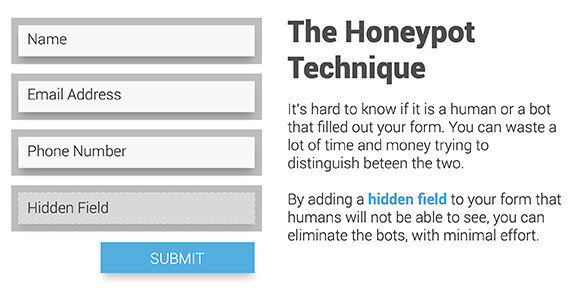The Impact of Fraud Form Fills on Lead Generation

Lead generation fraud is a big concern for all businesses that rely on digital marketing to meet specific goals. The goal of lead generation is for a prospective buyer to fill out a form and request more information. When a nefarious human or a bot fills out a form with information belonging to random people, without their knowledge or consent, you now have lead generation fraud.
Lead generation fraud wastes valuable resources like time and money. The result is always the same- low quality leads and little to no ROI. In the worst-case scenario, your business could face the penalty of violating TCPA (Telephone Communications Protection Act) compliance.
How Forms Are Filled Out Fraudulently
a) Bots
Bots are perhaps the most renowned forms of ad fraud. They are robotic algorithms that can fill out a lead form. Some bots submit gibberish while others use real people’s information. Bots usually aren't as sophisticated as human fraud. Most marketers block or use CAPTCHA images to prevent bots from filling their sign-up forms and subscriptions. The algorithms are also easier to detect using basic techniques.
b) Human Fraud Farms
Human fraud farms use actual humans to fill out forms with usually stolen information belonging to real people. This is the worst form of lead generation fraud because you end up with lead lists that feature contacts you have no consent to call thereby violating TCPA compliance. Being that the forms are filled out by actual humans, this type of fraud is the most difficult to detect.
Top 5 Concerning Impacts of Ad Fraud
1. Violating TCPA Rules
Businesses can contact and send promotional messages to prospective clients, provided they have their consent. When fraudsters fill out forms and callback lists with random lead information, you end up with people that did not consent to be called.
Calling such leads can amount to TCPA non-compliance, which is punishable. Fines range from $500 to $1,500 per violation and this can translate into hundreds of thousands of dollars if you have multiple violations.
Human fraud farms are notorious for using unsanctioned lead information, so you should always examine your sources. TCPA rules also keep evolving and there are many grounds for litigations if you are found in violation.
2. Wasted Resources and Low ROI
Effective marketing involves investing in paid ads and campaigns to attract leads and continued engagement to convert the prospects into customers. Buying leads from questionable sources will leave you with prospects that don't respond to your promotions or interact with your products.
Fraudsters not only waste your valuable resources, they significantly reduce your conversion rates and water down your ROI (return on investment).
3. Tarnished Brand Reputation
Calling leads that did not give you the consent to call can tarnish your reputation. Customers will quickly recognize the foul play and associate you with fraudulent online advertising. Many will flock to social media to hurt your social presence and reputation. In more serious instances, class-action lawsuits can also have adverse impacts on your brand's reputation.
Many businesses fail to recover from litigations, so you should be concerned about facing lawsuits from ad fraud. Even with proper coverage, your business will still suffer a negative reputation, which can hurt your relationship with customers, investors, suppliers, and other stakeholders. As such, it is advisable to have adequate measures to protect you from potential lawsuits.
4. Low-Quality Leads
There are different types of leads. Essentially, leads that opt-in to newsletters and promotional messages are considered high-quality leads. They are the principal focus of most enterprises. Other leads come across your business while looking for different products or services and are generally not interested in your product or service at the moment.
When your business is the victim of lead generation fraud, your online forms are filled with fake or stolen information; like phone numbers or addresses. Ultimately you end up with low-quality leads infiltrating your sales funnels and missing your target audience due to ad fraud.
5. Inaccurate Metrics
Many marketers use analytics to discern customer behavior, track the progress of various strategies, and establish new means of achieving their desired results. Invalid leads will provide inaccurate metrics, leaving you susceptible to poor decision making and can translate into massive ROI losses and failure.
Dealing with Lead Generation Fraud
An estimated 25% of all online traffic is fraudulent. That translates into one dollar for every 4 dollars spent is lost to ad fraud. Here are 4 tips to help you identify and prevent ad fraud:
1. Honeypots
Honeypots are unique fields you can add to your forms. These fields aren't visible to the human eye, but some bots can detect and fill them in. If you get a form completed with the honeypot field filled in, it is probably fraudulent.

2. Use CAPTCHA
CAPTCHA stands for the Completely Automated Public Turing test to tell Computers and Humans Apart. CAPTCHA uses puzzles that humans can easily solve eliminating basic bots. However, more sophisticated bots can get around basic captchas. CAPTCHA can also create a poor user experience.
3. Choose Reliable Lead Sources
Knowing where your leads are coming from is very important if you want to avoid lead generation fraud. Reliable sources use various fraud-filtration systems to keep invalid leads from their lists. You can also look up their reputation, quality guarantees, network, and how they source the leads.
4. Use an Ad Fraud Solution
Anura is an ad fraud solution designed to detect bots, malware, and human fraud. The goal is to optimize campaign efficiency and reduce wasted ad spend. Anura offers a sleek, user-friendly dashboard you can use to track your lead using numerous data points and a continuously updated analytics platform. You can catch more fraud using Anura and gain more qualified leads than ever, which also provides insights to help you enhance campaign efficiency, accuracy, and impacts.
Summary
Bots, malware, and human fraud can result in violating TCPA compliance requirements, costing your business thousands of dollars. You are also stuck with low-quality leads that have less impact on your revenue, which is why you need reliable ad fraud detection. It is also crucial to work with trusted partners that have a good reputation in the market.
If you have any doubts, it is best to test using Anura’s ad fraud solution to get a better scope of lead scoring and what contacts can enter your sales pipeline. Contact us today to find out more about our solution and how it can boost your marketing efforts.



